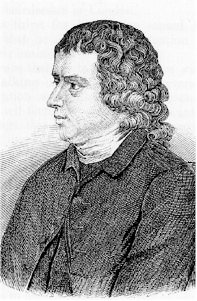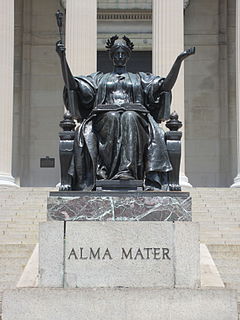The Londonderry Air is an Irish air that originated in County Londonderry. It is popular among the American Irish diaspora and is well known throughout the world. The tune is played as the victory sporting anthem of Northern Ireland at the Commonwealth Games. The song "Danny Boy" uses the tune, with a set of lyrics written in the early 20th century.

"The Last Rose of Summer" is a poem by the Irish poet Thomas Moore. He wrote it in 1805, while staying at Jenkinstown Park in County Kilkenny, Ireland, where he was said to have been inspired by a specimen of Rosa 'Old Blush'. The poem is set to a traditional tune called "Aislean an Oigfear", or "The Young Man's Dream", which was transcribed by Edward Bunting in 1792, based on a performance by harper Denis Hempson at the Belfast Harp Festival. The poem and the tune together were published in December 1813 in volume 5 of Thomas Moore's A Selection of Irish Melodies. The original piano accompaniment was written by John Andrew Stevenson, several other arrangements followed in the 19th and 20th centuries.

"The Minstrel Boy" is an Irish patriotic song written by Thomas Moore (1779–1852) who set it to the melody of The Moreen, an old Irish air. It is widely believed that Moore composed the song in remembrance of a number of his friends, whom he met while studying at Trinity College, Dublin and who had participated in the Irish Rebellion of 1798. However this has never been definitively proven and the tune is also played by the British Army and Orange Order flute bands The song gained widespread popularity and became a favourite of many Irishmen who fought during the American Civil War and gained even more popularity after World War I. The song is notably associated with organisations that historically had a heavy representation of Irish-Americans, in particular the police and fire departments of New York, Boston and Chicago and those of various other major US metropolitan areas, even after those organisations have ceased to have a substantial over-representation of personnel of Irish ancestry. The melody is frequently played, typically on bagpipes, at funerals of members and/or officers of such organisations who have died or been killed in service. Unsurprisingly, given its lyrics, it is also associated with the Irish Army and with traditionally Irish regiments in the armies of the United Kingdom and the United States as well as other armies of the world.

"The Dover Boys at Pimento University" or "The Rivals of Roquefort Hall" is a 1942 Merrie Melodies cartoon produced by Leon Schlesinger Productions and directed by Chuck Jones. It was released by Warner Bros. on September 19, 1942. The cartoon is a parody of the Rover Boys, a popular juvenile fiction book series of the early 20th century. In 1994, the cartoon was voted #49 of the 50 Greatest Cartoons of all time by members of the animation field.
"My Bonnie lies over the ocean" is a traditional Scottish folk song that remains popular in Western culture.
"Oh My Darling, Clementine" is an American western folk ballad in trochaic meter usually credited to Percy Montrose (1884), although it is sometimes credited to Barker Bradford. The song is believed to have been based on another song called "Down by the River Liv'd a Maiden" by H. S. Thompson (1863). It is commonly performed in the key of F Major. Members of the Western Writers of America chose it as one of the Top 100 Western songs of all time.
I Haven't Got a Hat is a 1935 animated short film, directed by Isadore Freleng for Leon Schlesinger Productions as part of Warner Bros.' Merrie Melodies series. Released by Warner Bros. on March 2, 1935, the short is notable for featuring the first appearance of several Warner Bros. cartoon characters, most notably future cartoon star Porky Pig. I Haven't Got a Hat was one of the earliest Technicolor Merrie Melodies, and was produced using Technicolor's two-strip process instead of its more expensive three-strip process.

"Aura Lea" is an American Civil War song about a maiden. It was written by W. W. Fosdick (lyrics) and George R. Poulton (music). The melody was used in Elvis Presley's 1956 hit song "Love Me Tender".
"The Girl I left Behind", also known as "The Girl I Left Behind Me", is an English folk song dating back to Elizabethan era. It is said to have been played when soldiers left for war or a naval vessel set sail. According to other sources the song originated in 1758 when English Admirals Hawke and Rodney were observing the French fleet. The first printed text of the song appeared in Dublin in 1791. A popular tune with several variations The Girl I Left Behind Me may have been imported into America around 1650 as 'Brighton Camp', of which a copy dating from around 1796 resides in the Bodleian Library, Oxford.
"Gwine to Run All Night, or De Camptown Races" is a minstrel song by Stephen Foster (1826–1864). It was published in February 1850 by F. D. Benteen of Baltimore, Maryland, and Benteen published a different version with guitar accompaniment in 1852 under the title "The Celebrated Ethiopian Song/Camptown Races". The song quickly entered the realm of popular Americana. In 1909, composer Charles Ives incorporated the tune and other vernacular American melodies into his orchestral Symphony No. 2.
"The Merry-Go-Round Broke Down" is a song written in 1937 by Cliff Friend and Dave Franklin and published by Harms Inc., New York. It is best known as the theme tune for the Looney Tunes cartoon series and Merrie Melodies reissued cartoon series produced by Warner Bros. Cartoons, used from 1937 to 1969.

Show Biz Bugs is a 1957 Warner Bros. Looney Tunes animated short directed by Friz Freleng and featuring Mel Blanc as the voices of Bugs Bunny and Daffy Duck.

"Come Thou Fount of Every Blessing" is a Christian hymn written by the 18th century pastor and hymnodist Robert Robinson. Robert Robinson penned the words at age 22 in the year 1757.
"Down by the Salley Gardens" is a poem by William Butler Yeats published in The Wanderings of Oisin and Other Poems in 1889.

"The Gold Diggers' Song " is a song from the 1933 Warner Bros. film Gold Diggers of 1933, sung in the opening sequence by Ginger Rogers and chorus. The entire song is never performed in the 1933 movie, though it introduces the film in the opening scene. Later in the movie, the tune is heard off stage in rehearsal as the director continues a discussion on camera about other matters.
"I'm Looking Over a Four Leaf Clover" is a song from 1927, which was written by Mort Dixon with music by Harry M. Woods. Original hit recordings were made in 1927 by Nick Lucas (#2), Ben Bernie (#3), and Jean Goldkette (#10).

Elmer J. Fudd is a fictional cartoon character in the Warner Bros. Looney Tunes/Merrie Melodies series, and an adversary of Bugs Bunny. He has one of the more disputed origins in the Warner Bros. cartoon pantheon. His aim is to hunt Bugs, but he usually ends up seriously injuring himself and other antagonizing characters. He speaks in an unusual way, replacing his Rs and Ls with Ws, so he always refers to Bugs Bunny as a "scwewy wabbit". Elmer's signature catchphrase is, "Shhh. Be vewy vewy quiet, I'm hunting wabbits", as well as his trademark laughter.
The Woods Are Full of Cuckoos is a 1937 Merrie Melodies cartoon directed by Frank Tashlin.















